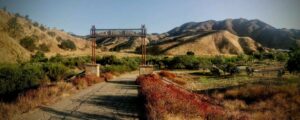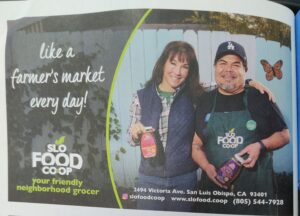Project Overview
Information Products
Commodities
- Animals: bees
- Animal Products: honey
Practices
- Crop Production: beekeeping, food product quality/safety
- Education and Training: on-farm/ranch research
Summary:
 The American honey market is flooded with adulterated honey and consumers don't know how to determine which honey to buy. Until recently, there has been little technology for testing of honey to determine each honey's unique polyphenolic characteristics.
The American honey market is flooded with adulterated honey and consumers don't know how to determine which honey to buy. Until recently, there has been little technology for testing of honey to determine each honey's unique polyphenolic characteristics.
Rock Front Ranch's honey is produced in a geographically isolated area with a unique diversity of flora for bees to forage, including some plants with recognized healing components.
Rock Front Ranch used state-of-the-art Sweetwater Science Labs to determine the content and makeup of its Sage Honey. In the first year, the lab analyzed Rock Front Ranch's Sage Honey. In the second year, due to extreme historic drought conditions, the bees did not produce any wildflower honey. The lab used Liquid Chromatography Mass Spectroscopy to determine that pesticides and pollutants were not present, in addition to listing each flavonoid contained in the Sage Honey.
Rock Front Ranch has applied this research by describing the healing qualities of these flavonoids (for example, antioxidants and antiseptic compounds) and promoting the honey for its unique characteristics.
Workshop and presentations have been held in CA for beekeepers and consumers, to describe the results of the testing and the potential effect on consumer health of the identified compounds. The benefit of using the results of the study to enhance honey marketing were also discussed.
In addition, an informative brochure was prepared and disseminated to educate beekeepers and consumers on the health-giving qualities of honey.
PROGRESS REPORT as per timeline dates:
Collected and submitted sample Aug. 2021. Received analysis Nov. 30, 2021. Created NMR handouts and new NMR page on website Fall of 2021.
PROCESSING AND BOTTLING WAS DRASTICALLY IMPACTED BY THE DROUGHT.
Education continued, with online interviews, online presentations and a video. Due to Covid 19, no in-person classes or workshops were given except for one presentation to Rotary Club, sponsored by Allan Hancock College in Santa Maria, CA. attended by 25 people, 6 of whom were farmers, 4 were educators and 15 were members of the community in addition to a presentation also given at Allan Hancock College which was attended by agricultural students who had expressed an interest in becoming beekeepers.
Project objectives:

Rock Front Ranch (RFR) proposed to utilize state-of-the-art testing from Sweetwater Science Lab in MO to use liquid chromatography mass spectroscopy to determine and analyze a wide range of flavonoids and polyphenols in RFR honey samples. Scientific studies show that it is the phenolic acids and flavonoids in honey which exhibit a wide range of biological effects and act as natural antioxidants. An article in Bee Culture, by Tianna Kolody, April 23, 2018 cites a study by Pyrzynska and Biesaga, in 2009, which states that it is the flavonoids and phenolic acids which give honey its unique flavors and antibiotic characteristics.
RFR's isolated geography and diversity of flora provide a rich source of certified glyphosate-free honey. Using Sweetwater's testing, we showed a direct connection between the components that make up the honey and its unique character, and demonstrated a high degree of antioxidant properties which could prove the honey to be an excellent immune-system booster. During the time of COVID 19, this research becomes increasingly important as consumers are looking for natural foods that will assist them in staying healthy.
RFR continues to educate consumers on its findings by creating consumer-friendly marketing brochures, and has presented 2 workshops, a Zoom presentation for beekeepers and consumers, and a class for agricultural students, detailing the findings and the implications for better consumer health.
Workshops for farmers were presented via Zoom.
Informative articles were shared on social media. Bee gold: Honey as a superfood (knowablemagazine.org)